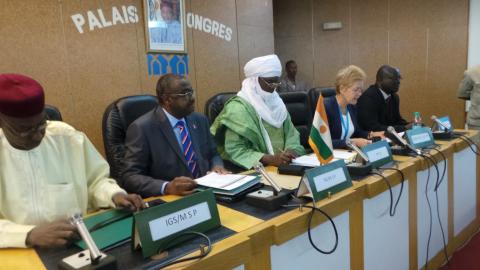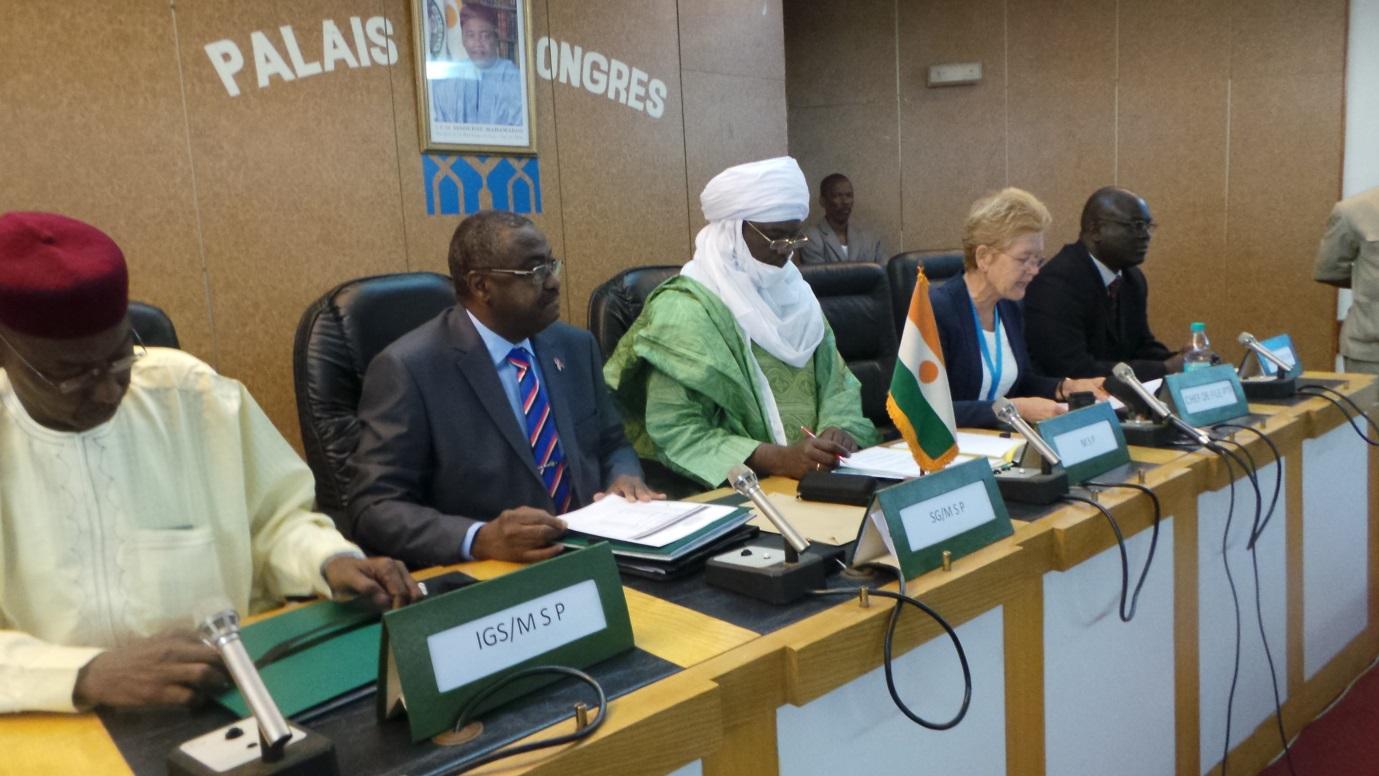
In a regional context of a barely mastered Ebola epidemic the task of modernizing health systems in Africa is – undoubtedly – seen as a universal responsibility – but where to start with a project of this dimension?
Niger appears to have led by example on this point: Upon request of the Ministry of Public Health (MoH), an institutional audit of the MoH in Niger was conducted during the period March-April 2015. The aim was to lay the foundations for a reform modernizing the entire ministry.
The EU-Lux-WHO partnership on universal health coverage (CSU) has played a leading role here in providing the needed expertise for the implementation of the audit. Although the institutional audit of the Ministry of Health had not been foreseen in the roadmap of the EU-Lux-WHO Partnership, the country office and the recruited international expert identified the activity as a key priority for the WHO’s support to the MOH in Niger.
The question is what was the ‘secret recipe’ of Niger for the success of this initiative. Given the multidisciplinary nature of such an exercise, two organizations supported the implementation of the audit: AEDES, an independent consulting firm and WHO. The six pillars of the health system were the guiding axes for the situational assessment made by the auditors, one of whom had been recruited under the EU-Lux-WHO partnership.
A recipe can only be successful if the ‘master chef’ uses quality ingredients to implement: It is precisely this role that was assumed by the MoH through the establishment of a monitoring committee headed by the Secretary General for Public Health, also in charge of coordinating all the work. The role of this committee, chaired by the MoH, was essentially to (i) develop the schedule of contacts that auditors would have with stakeholders, (ii) ensure ownership of audit recommendations, (iii) organize the audit’s results assessment meetings.
As for ‘winning dishes’ emerging from the exercise, the audit has helped develop a list of MoH modernization axes that have been approved by the Committee set up for this purpose. Among the key recommendations there is: (i) establishing a new organizational structure based on PNS implementation needs, (ii) develop and adopt a national health map for rational integration of both public and private health facilities(iii) create the legal and organizational conditions and mobilize additional resources (innovative financing, etc.) to accelerate the implementation of the universal health coverage process (iv) develop a single and coherent roadmap including all the reforms affecting the peripheral level which will be gradually implemented depending on the availability of resources, (v) quickly formulate a new pharmaceutical policy more appropriate to the context and the new challenges of sector at national and international levels, (vi) implement an effective multi-sectoral dialogue to facilitate the implementation of the recommendations of the institutional audit and resolution of complex issues such as those relating to human resources for health.
According to the WHO regional office, “It is expected that the MoH will implement the audit recommendations, which will allow it, we hope, to establish a more effective and efficient health system which, where user satisfaction is at the center of all needed reforms. ” This will, in turn, significantly advance the goal of a general improvement in the population’s health status in Niger.
To achieve this, a number of challenges remain to be addressed, beginning with the fight against the politicization of human resources for health (HRH): According to a member of the WHO regional office, “The area of human resources is the nerve of the war in Niger. ” Ensure that MoH has the capacity for the implementation of audit recommendations is another step to take, followed closely by the ability of partners to organize themselves to form a lever on which the MoH can lean to advance reforms.
According to the WHO regional office, “one of the lessons learned from this audit is that the organization, functioning as well as the MoH’s performance are very closely related to other sectors.” For example, on the issue of human resources for health, so crucial to Niger, can not be resolved solely by the MoH, to the extent that it depends on the Ministry of Employment and Civil Service, the Ministry of Economy and Finance and the Ministry for Decentralisation. A healthy policy dialogue that includes all these areas is a necessity.
Last but not least, whatwould be a good chef without his/ herassistants? As an organization responsible for supporting the MoH in the development of policies, plans and norms and standards, WHO’s leading role in this process is to ensure that the axes of modernization and recommendations emerging from the audit are taken into account in the current process of updating the health policy, the development of the new health development plan and the updating of national health standards. The second role of WHO is to provide technical support for the strengthening of national frameworks and structures in the implementation of audit recommendations and the third is to conduct high-level advocacy to create a momentum for the health sector. The last role is to help partners coordinate their efforts in supporting the implementation of the recommendations of the institutional audit by the Government of Niger.
According to the WHO Regional Office, the fact that the international expert recruited under the Partnership Eu-Lux WHO has worked both on the institutional audit, evaluation and updating of the National Health Policy is a great advantage in the sense that it allowed for the direct alignment of the MoH’s axes of modernization with the development of the PNS. These axes will be translated into concrete actions in the framework of the Health Development Plan.
As for the costs of implementing a successful recipe, according to the WHO regional office, “the idea is to avoid that audit recommendations are subject to a different implementation plan than the one included in the Health Development Plan (PDS).” That is why, rather than establishing a budgeted implementation plan for the recommendations of the audit, “it was considered appropriate to integrate the latter into the development axes of the PNS under elaboration. Resulting activities will be financed, as usual, from domestic (state budget) and international resources”.
